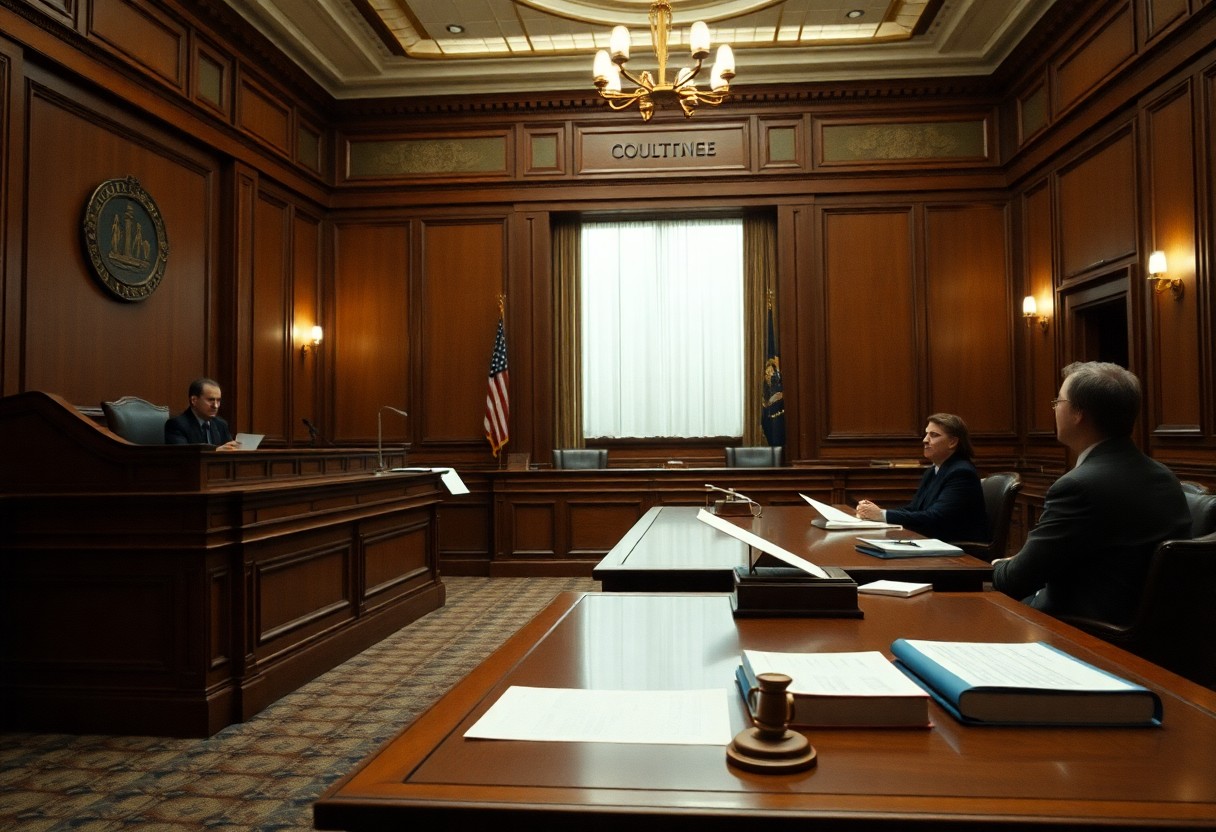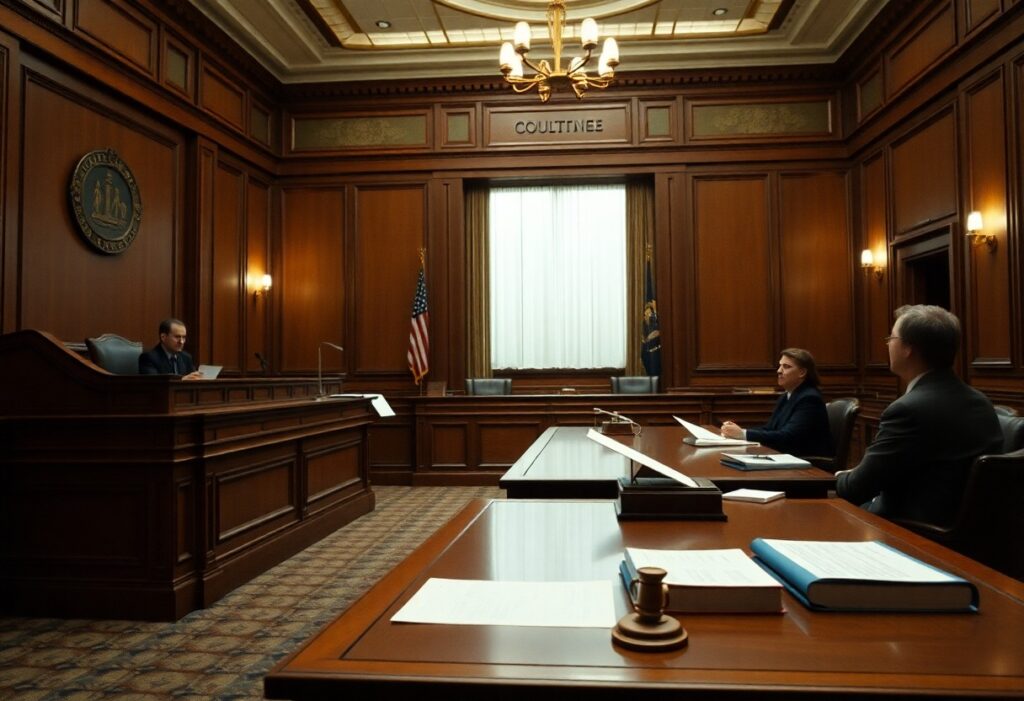With the complexities surrounding a DCF case, you may find yourself wondering whether hiring a lawyer is beneficial. Engaging a legal professional can provide you with valuable guidance and support throughout the process, helping you navigate the legal system more effectively. This post will explore your options for hiring a lawyer, including the advantages they can bring to your case and how to select the right one for your needs.

Key Takeaways:
- Hiring a lawyer for a DCF (Department of Children and Families) case can provide necessary legal guidance and support throughout the process.
- Legal representation can help parents understand their rights and responsibilities under the law, particularly in child welfare matters.
- A lawyer can aid in navigating the complexities of the legal system, including court proceedings and negotiations with DCF.
- It is important to select a lawyer who has experience specifically in dealing with DCF cases to ensure effective representation.
- Legal fees may vary, and it is advisable to discuss financial arrangements upfront with the lawyer before commencing any legal action.
Navigating the Complex World of DCF Cases
The Role of the Department of Children and Families
The Department of Children and Families (DCF) plays a pivotal role in ensuring the safety and wellbeing of children. This department is responsible for investigating reports of child abuse or neglect, which may arise from various sources, including schools, hospitals, or even anonymous tips. If DCF receives a report, social workers will conduct home visits and interviews with family members to assess the situation. Their objective is to determine whether a child is in immediate danger, and if so, to take necessary steps to protect the child, which can include removing the child from the home if needed.
Your case can unfold in various ways, depending on the findings of the DCF investigation. If the agency believes that safety concerns can be addressed through family support services, they may provide resources that enable you to keep your family intact. In more severe cases, DCF may file a petition for court intervention, which could lead to a legal battle. Understanding the dynamics of DCF involvement is vital, as this knowledge can significantly affect how you navigate your case and the strategies you employ to safeguard your parental rights.
Common Misconceptions About DCF Involvement
Furthermore, it’s advisable to obtain a detailed breakdown of the expected costs upfront. Clarity here ensures there are no surprises along the way. Some lawyers also provide payment plans, which can be particularly beneficial if your financial resources are limited. Exploring all these options can help you make a more informed decision when choosing the right representation for your case.
Assessing the Potential Return on Investment
The potential benefits of hiring a lawyer for your DCF case can outweigh the financial costs when considering the long-term implications of the outcome. A skilled lawyer may help you navigate the complexities of the legal system, ensuring that your rights are protected, which can lead to more favourable results. The potential to secure reunification with your children, or to achieve a fair custody arrangement, can markedly enhance your quality of life and family stability, making the initial investment in legal counsel worthwhile.
By evaluating the potential return on investment, you should also factor in the emotional toll of legal battles. This process can be stressful and overwhelming. Having an experienced advocate on your side can alleviate some of that burden and offer more strategic insights into your case, significantly improving your position. Past case studies have shown that individuals who invest in legal representation often achieve better outcomes than those who attempt to navigate these challenges alone.

What to Expect During the Legal Process
The Stages of a DCF Case
Your DCF case will typically unfold in several stages, each critical for ensuring the best outcome for you and your family. Initially, the process often begins with an investigation by the Department of Children and Families (DCF) following a report of alleged abuse or neglect. This phase includes home visits, interviews with family members, and assessments of your living conditions. It’s during this time that gathering evidence becomes vital, as it sets the groundwork for future proceedings.
If the DCF determines that your child may be at risk, they may file a petition in family court, leading to a preliminary hearing. This stage often involves presenting evidence to a judge, who will decide whether to place your child in temporary custody or allow them to remain with you, sometimes with conditions attached. Navigating through hearings, evaluations, and any necessary court-ordered services will be pivotal, as each step influences the outcome significantly.
How Legal Support Can Impact Your Outcome
The role of legal support in the DCF process cannot be overstated. Having a qualified attorney by your side not only helps you understand the complex legal language but also equips you to navigate the intricacies of family law effectively. A lawyer will advocate for your rights and work to contest unfounded claims made against you. They can also guide you in gathering the appropriate documents, from character references to evidence of your parenting capacity, ensuring that your side of the story is compellingly presented in court.
The presence of legal support may directly influence how judges perceive your case. Lawyers can effectively communicate your situation and intentions, making a strong case for your competence as a parent. Their knowledge of local laws, procedures, and court personnel allows them to strategise tailored approaches aligned with your circumstances. This strategic guidance can be the key to achieving a positive resolution, as represented parties often find themselves more favourably positioned than those without legal representation.
Moreover, lawyers can assist in negotiating agreements that might otherwise be difficult to achieve alone. Whether it involves engaging in mediation with DCF or discussing potential services and resources you might undertake, their expertise can facilitate constructive dialogue that benefits not just the case outcome, but also your family’s overall wellbeing. In many instances, the involvement of a skilled attorney can translate to a more favourable arrangement, allowing you to retain custody or gain important visitation rights.
Final Words
With these considerations in mind, you should assess whether hiring a lawyer for your DCF case would be beneficial for your specific situation. A lawyer can provide you with a clear understanding of the legal processes involved, help navigate the complexities of your case, and represent your interests effectively. They can assist you in gathering evidence, preparing for court, and ensuring that your rights are protected throughout the proceedings. It is particularly important if you face allegations that could significantly impact your family, as having legal expertise can make a notable difference in the outcomes of your case.
Ultimately, the decision to hire a lawyer for your DCF case should be based on the complexity of your situation and your comfort in representing yourself. Engaging a qualified attorney can empower you with the knowledge and skills necessary to combat the challenges you face, allowing you to focus on the best interests of your family. Weigh the pros and cons carefully, and consider reaching out to professionals who specialise in family law to discuss your options and make an informed choice.
FAQ
Q: Can I hire a lawyer for a DCF case?
A: Yes, you can hire a lawyer for a Department of Children and Families (DCF) case. Engaging a lawyer can provide you with vital guidance throughout the legal process. They can help you understand your rights, represent your interests in court, and navigate the complexities of DCF proceedings.
Q: What type of lawyer should I hire for a DCF case?
A: It is advisable to hire a lawyer who specialises in family law or has experience dealing with DCF cases specifically. Such a lawyer will be familiar with the local laws and regulations as well as the procedures involved in child welfare cases, which can greatly benefit your situation.
Q: How can a lawyer assist me in a DCF case?
A: A lawyer can assist you by providing legal advice, representing you in court, helping to gather necessary documentation, and preparing you for hearings. They can also advocate on your behalf during negotiations and communicate with DCF officials, ensuring your case is handled properly and your rights are protected.
Q: Are there costs associated with hiring a lawyer for a DCF case?
A: Yes, there are typically costs associated with hiring a lawyer. Legal fees can vary based on the lawyer’s experience and the complexity of your case. Some lawyers may offer payment plans or sliding scales based on income. It’s advisable to discuss fees upfront during your initial consultation.
Q: What should I look for in a lawyer for my DCF case?
A: When choosing a lawyer for your DCF case, look for someone with experience in family law and a strong track record with DCF matters. Consider their communication style, availability, and willingness to listen to your concerns. Reading reviews or testimonials from previous clients can also provide insight into their capabilities.







